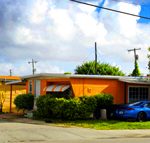From the wreckage of the housing crash, trailer parks have emerged as a lucrative investment option.
Since March 2009, shares in Sam Zell’s mobile-home business, Equity LifeStyle Properties, have returned 1,186 percent, according to an analysis by the Wall Street Journal. Shares in Sun Communities Inc., another big owner, returned 4,137 percent.
“It’s baffling how good of a business it has been,” analyst John Pawlowski, of Green Street Advisors, told the newspaper.
But it has been called “financially catastrophic” for low-income Americans by the likes of John Oliver.
Mobile homeowners typically own their houses and rent the land underneath. When a mobile-home park owner sells the land to an investor, the buyer often raises rents. Residents who cannot afford the higher rent or the tens of thousands of dollars to move the homes sometimes abandon them, said the host of “Last Week Tonight With John Oliver” on a show last year.
Read more


Roughly 20 million Americans — one out of every 18 — live in mobile home parks.
Trailer parks are relatively low-maintenance for owners: The manufactured homes and vehicles on the site are brought on and off the land by tenants, who are also responsible for maintaining them. Demand for these sites across the country is high as an increasing number of Americans are priced out of the housing market by restrictive building policies and slow wage growth.
While the median price for a single-family home is reportedly about $280,000, the average price for a mobile home was about $53,000 as of last year, according to figures from the U.S. Commerce Department.
The popularity has brought more competition into the market and a surge in interest from investors, including sovereign wealth funds, pensions and private equity. Zell’s firm poured $150 million into expansion last year and finished 2019 with 156,513 sites — 11 percent more than its 2011 total. [WSJ] — Sylvia Varnham O’Regan
